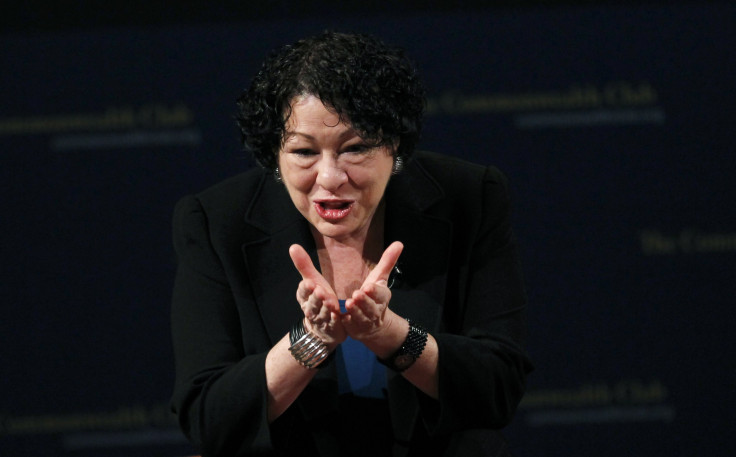Drones, Surveillance Technology Becoming 'Orwellian,' Says Supreme Court Justice Sotomayor

U.S. Supreme Court Justice Sonia Sotomayor said “frightening” changes in surveillance and drone technology are increasingly raising questions about privacy rights and an "Orwellian world." Sotomayor said she is particularly troubled by the potential for commercial and government drones to intrude on private property.
Sotomayor's remarks came during a speech before faculty members and students at Oklahoma City University’s law school Thursday, the 13th anniversary of the Sept. 11, 2001, terrorist attacks. Technological advances have made it possible for devices to “listen to your conversations from miles away and through your walls,” she said. "We are in that brave new world, and we are capable of being in that Orwellian world, too."
Americans need to be more protective of their right to privacy, Sotomayor said.
"There are drones flying over the air randomly that are recording everything that’s happening on what we consider our private property," she said. "That type of technology has to stimulate us to think about what is it that we cherish in privacy and how far we want to protect it and from whom. Because people think that it should be protected just against government intrusion, but I don’t like the fact that someone I don’t know…can pick up, if they’re a private citizen, one of these drones and fly it over my property."
Drones are widely expected to become a fixture of American life over the next few years. The Federal Aviation Administration has estimated there will be at least 20,000 drones in the sky by 2017.
Only three countries -- the U.S., United Kingdom and Israel -- have deployed armed drones in combat while other countries, including Russia, China and Iran, are known to have armed drones although they’ve never been used at war.
© Copyright IBTimes 2025. All rights reserved.






















